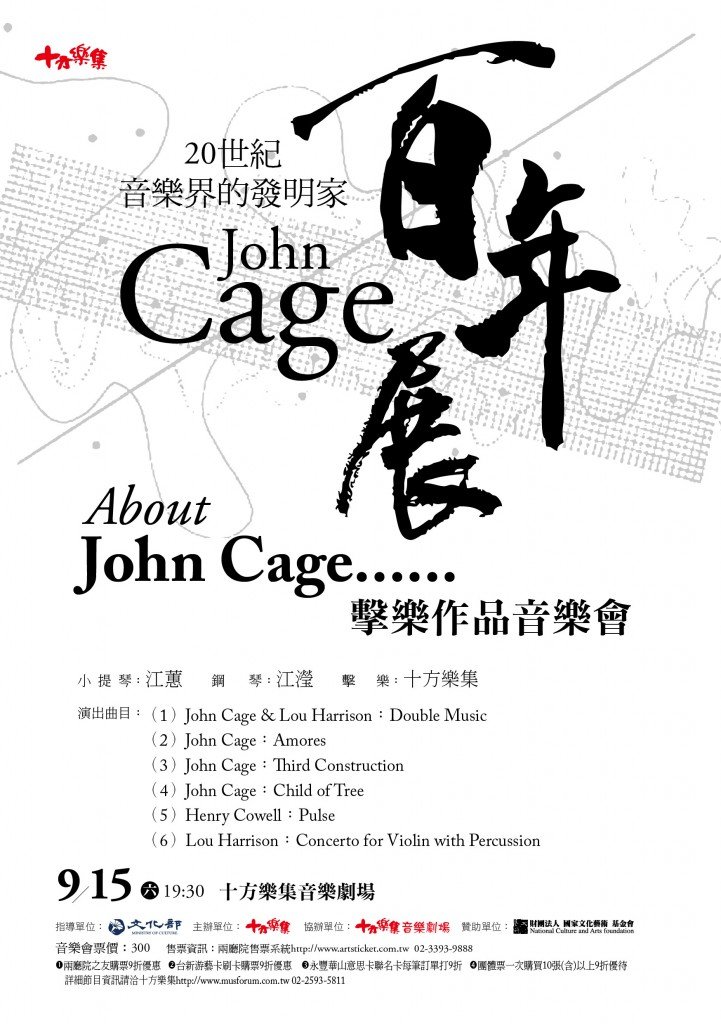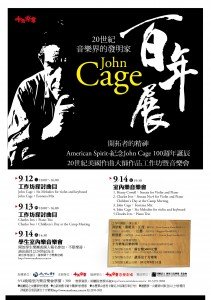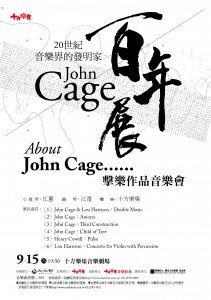Solo Performances 2012
9/14、9/15晚場室內樂音樂會票價:300元/每場
Love & something close to love
Sinalunya Interviews: Huei Chiang
Sinalunya Interviews: Huei Chiang
Sinalunya Interviews: Huei Chiang
When someone would go to a concert of the Empordà Chamber Orchestra, he or she would possibly be surprised to discover that the first violinist and assistant concertmaster is a young lady from East Asian origin. Her name is Huei Chiang (江蕙) and she was born in Taipei in 1980. She is also a talented writer, her other huge passion besides music. She has been living in Catalonia since 1999, when she accepted such a position in the Empordà Chamber Orchestra. As a Taiwanese native but also a long time resident in Catalonia, she has the perfect profile to analyze both societies and how globalization is getting them to be closer every passing day. Sinalunya has approached her with this purpose and we thank her for taking the time to answer these questions.
Q: You have been living in Catalonia for more than 10 years now. What is your perception of the Catalan society? How was integration in such a different society for a young Taiwanese lady? And what was the reaction of the local people?
R: It’s a tricky question! I wouldn’t say that in general the Catalan people are open to foreigners; people are nice and friendly in this region, but it doesn’t mean that they would try to make you “feel like home” in this country. From my part, in my fifth year in Catalonia, I thought that it was time for me to learn some Catalan, I wanted to feel more integrated, so I took Catalan classes. Some people were really impressed by an Asian girl that “tried to speak Catalan” and they were happy to answer me in Catalan as well, but some others just kept on speaking Spanish to me, like it didn’t matter to them… People are hard to please!!! (Joke)
Then I realized that speaking the local language is not the main thing which makes you feel being a part of a society, it helps, but what’s really important is if we “want” to understand and communicate with each other! Here I’ve seen the worst and the best qualities of people; I have some very good Catalan friends, and I don’t think that they would like me any less if we speak Spanish to each other!
Q: You were hired as first violinist and you were only 19 years old at that time. Were your fellow colleagues with the orchestra surprised to have you there? How was their acceptance? And what has been the evolution of your role there?
R: I don’t really know what they thought of me during that time! Maybe too young to be working?! But I was a good player then, and they were my first friends in this country!
What I’ve been doing in the past 11 years is to take as much advantage as I can from this work: I love playing as a soloist and I’m very fortunate to have many chances to be accompanied by my own orchestra. They are my colleagues who support me, and I’ve learned so much by being on the stage as a soloist -controlling one’s nerves and mental state, building up one’s presence and self confidence…
When I first entered the orchestra, I was a first violin tutti and then became the assistant concertmaster (the second chair in the first violin group), which means sometimes that I also do the concertmaster’s work while he is on leave. Being in that chair is a challenge, because then you really feel the responsibility right on your shoulders -how can you make your group sound better together? And be 100 % sure for your orchestra because they rely on you. All together it has been a good training for my personal growth.
Q: Catalonia has always been an open nation that has looked beyond its borders, but now nearest markets are becoming difficult and East Asian ones can play an important role in getting out of the crisis. What would you recommend to Catalan entrepreneurs and businessmen if they had to go to Taiwan in order to deal with Taiwanese people and culture?
R: Taiwanese people are fascinated by foreign cultures. They used to be very American influenced, and then both the Japanese culture and the Korean cultures have also played quite an important role in the recent past. In the last 15 years, every time when I get back home I’m so amazed to see how international the place has become. In big cities you’ll find European cafes, restaurants even better decorated than here, and getting good Italian, French or even Spanish food is no rarity. As Taiwanese are open to things coming from the outside, people like to change their taste every now and then (the speed of fashion is much quicker there), basically nothing stays the same for more than 2-4 months, and people would have to keep renovating, reinventing their products in order to catch the public’s attention. Catalan people are very smart in relation to economy, what I would suggest is to understand Taiwanese people’s tendencies and needs: healthy products such as olive oil and grape seed oil, they also appreciate wine, cheese (in the supermarket you can get all kinds of cheese, possibly more varieties even than here!). As for dealing with businessmen there, I really have no idea, because there are all kinds of people! Some people can be direct and honest, some can be “never reject you” in front of your face, but they wouldn’t do what they’ve promised, but they will always be friendly and polite with you.
Q: Talking about Taiwan, is there something from there that you are terribly missing here? And what would you take with you from Catalonia if you would move back to your native country?
R: I think all Taiwanese people would say the same thing: FOOD!!! The food is wonderful there. I also miss the people who I love (family and friends) and all the traditional Chinese holidays -by doing the celebration you really notice that the people have great respect towards our ancestors, our gods and ghosts. We treat the spirits, the unknown, with respect and indirectly that makes the place full of warmth. Every Chinese holiday has an interesting, sometimes even romantic story behind it. Unlike the western holidays, Chinese holidays have very little to do with religion but more with seasons and mythology.
Another thing I miss are the bookstores in Taiwan, you will only see this there: Every bookstore is like a library, there are tables and chairs around, you can choose any book you want, sit down and spend the whole afternoon reading it till you finish, no one will even come and ask you to buy the book! That’s what we think “normal” in bookstores, and the stores are always full of people and quite! The result is that people always buy books as well, but then you can really choose something you must have rather than buying some books you are not quite sure about.
And what would I bring from Catalonia, food wise? As for presents I often bring torrons, pimientos de Padrón, polvorones… but if I do move back to my country, it would be my whole living experience! My professional experience in playing and Yoga! I learned Yoga in Catalonia, and I am also a trained Yoga teacher.
Q: Are there any cultural interactions between Taiwan and Catalonia that you are aware of? Do you think that it is something to be explored? Any ideas?
R: I don’t think there is such an exchange between these two places, a lot of Asian people still haven’t heard of “Catalonia”, they know the city of Barcelona, and artists such as Pablo Picasso, Joan Miró, Salvador Dalí, the football team FC Barcelona… Of course there are things to be explored such as art and gastronomy.
Q: What are your highlights of your life and career here? And what are your projects for the near future?
R: What a question! I didn’t win any special “gold medal” to have golden lights shining all over me! I’m a violinist and I enjoy playing, when I do a good performance and feel the audience responds to me, this makes me complete, these are the moments I appreciate in life.
As for my projects- I have something that I have to keep secret yet, because I want to be one of the first people who present such a thing in the world. When I get it finally planned and settled, I’ll be glad to publish the news on the site!!! (Carl Jung talked about the collective unconsciousness, so I may not be the first one in the world who has had this idea).
Q: Finally, please let us know a little bit more about yourself by telling us your tastes:
A book: About Love and Solitude by Krishnamurti
A movie: The Shawshank Redemption
An actor or actress: Audrey Hepburn
A song or musical piece: Bach – Ciaccona
A performer: Billie Holiday
A composer: Franz Schubert
A landscape: L’Empordà
A dish from Taiwanese cuisine: Everything!
A dish from Catalan cuisine: Arròs negre (black rice), Fideuà, Cargols (snails)
A wish: To experience and live every moment
The above questions are too difficult to just answer one, especially about music and musicians; there are so many things which I love, so many composers and performers… So when I name one, it means- Everyone, Everything!
Finally, let’s enjoy the incredibly talented Huei Chiang on violin together with the Orquestra de Cambra de l’Empordà, conducted by Carles Coll, playing the Faust Fantasy op.13 by P. by Sarasate
Play how you feel!
Waiting vs. Later
People say “time flies”
Right now the time doesn’t even go…
Crawling like a patient spider
Constructing his web- waiting for someone delicious
Slow
Feels like a century
What does “later” mean?
When will “later” come?
She smiled-
Sudden breeze in a hot summer’s night,
And said:
Eh, later…
Moonlight
The Most Beautiful Face
你看過世上最美的臉孔嗎
也許是的!
當你看到電視或電影裡的美女帥哥?
演員,亦或是你的初戀情人,你最鍾愛的生活伴侶,或是你歷經萬苦,卻追也追不到手,令你魂牽夢縈的情人,或是你一生最了解你的Soul mate…
也許是,當你第一次擁抱你剛出生的小孩,看他純稚的小臉熟睡著,如此安祥,可愛,純淨,善良,美好…那的確是—The most beautiful face in the world
現在,我想告訴你一個故事,一個真實發生的舊事,那天,我看到了世上最美的臉龐-我看到天使。
那天,是2004年九月二十一號,我正和工作的樂團從阿根廷的Cordoba開車前往Mendoza演奏,為什麼會對這日期如此的記憶深刻呢?因為,位於拉丁南美洲的國家,氣候和歐洲顛倒,那天,正是他們春天的開始,春季的第一天呢!當地的習俗是,男士們送朵花或盆栽給女士,增加些歡樂的氣息。如此的開啟這一天漫長的旅程,不是個最美好的開始嗎?當時,對於幾小時後所發生的事,真是一點預期也沒有,我只是靜靜的看著窗外的街景,想著Sarasate的卡門幻想曲,因為這是我在這回拉丁美洲的巡迴演出中和樂團的協奏曲。
不知不覺的,到了吃午飯的時間了,我們在一個不知是哪的小鎮上停了下來,就在行駛的公路旁,有個露天吃飯的地方供應烤肉。去過阿根廷的人都知道,當地的牛排相當可口,當然,因為義大利移民的影響,吃Pasta的風氣也是普遍,到處都有新鮮的手工義大利麵餐廳,對於我們鍾愛Pasta的人來說,阿根廷可真是美食天堂,且價錢實惠! 再說到那頓公路旁的午餐吧,店家簡單的告訴我們他有哪些肉類,我們就依個人喜好點菜,有什麼就點什麼,倒有點古時候的江湖風味!邊吃飯,邊閒聊著,接著,也是繼續上路的時候了。
上了我們此次的旅遊車,繫上了安全帶,小說從包包中取出,又開始了旅程。不知是過了多久,也許不過是二十,三十分鐘的時間吧,世界竟全然不一樣了:首先,是旅行車向另一邊傾斜,(因為車身一後輪胎脫節,之後警察在幾公里遠的田野中把輪胎找到)接著車子完全的失去控制,我們在一片慌亂中,親眼看著另一輛大卡車從反方向駛來,眼看就要與我們正面相撞了,這時我們的車駕駛(也是我們的團員)極力把車向路旁的田野方向彎轉,車子轉是轉了,可是卻也連帶著一百八十度上下的翻轉,我當時只覺得身在一團混亂裡,頭和背部不知撞了幾回,我真的以為,世界要結束了,當時為了安慰自己身體的劇痛,只是想著,若這真是我們生命的劫數,這痛也不會太久的!在車子裡的經歷,有如一世紀般之久,終於翻轉停止了,緊接著的是四周一片死寂…
也許是一分鐘過後吧,我們隨後的另一輛交旅車(也是我們樂團的人)也停下,接著人們的尖叫聲四起,我和我的先生坐在一起,分別有安全帶繫著,我只覺得背部劇痛,什麼動作都無法做,我心想,若是有骨折或斷了肋骨,我該怎麼拉琴呢?一定得等救護人員到了,在我脖子上套了固定的護架,我才可以活動啊!當時,同車的指揮和其太太、女兒因沒繫安全帶,在車子翻轉中整個人被拋出車外幾公尺之遠,指揮躺在一灘血中,大家都以為他當場死亡…所幸沒有一個人有生命威脅。依稀的記得,耳邊有其他當地人的協助,幫忙打電話叫救護車的,其他沒大礙的團員(包括我的先生)查看其他人的情況。我當時是因背真的痛的厲害,向一位同事要水喝,他把水壺遞給我,我伸手拿竟然拿不住,一壺水就摔到了地上!身旁坐著另一位團員,他承受的痛苦比我還多,整個人臉色發白,他因為怕車子的引擎爆炸,所以要求其他人把他抬出車外…(他最後的確脊椎斷了一節,一年後完成復健,之後已能正常拉琴了)
接著,救護車抵達了,(不,應該是消防隊,在那種小鄉鎮,消防隊兼救護車的用途),救護員細心的把那固定脖子的套子幫我帶上,問我的情況好不好,並把我抬出車外。在前往醫院的途中,陸上的輕微小顛簸都帶給我椎心刺骨的痛,我先生一直在我身旁陪著我,老實說,當時不知為什麼,就是好想好想哭。也許是驚嚇後的反應吧,想藉由眼淚發洩。
到了醫院後,便在急診室躺著等著做X光片的檢查,這時,我的身邊來了位護士照顧我,大約記得她有頭濃黑的捲髮及黝黑友善的臉孔(在車禍中我的眼鏡早不翼而飛了,因此看人都看不清楚,只知道個輪廓!)她問我怎樣,我說我的手好冷,她馬上握起我的雙手,互相摩擦著幫我取暖,我抬頭看著我身旁的每個人,有醫護人員還有把我抬進來的救護人員,每個人的眼裡都露出焦慮及關懷。你知道嗎?頓時我了解了,他們這些也許我一輩子都不會再見到的人,是我所見過世上最美的臉孔! 我對於他們,是個從車禍裡出來,需要幫助的陌生人,而他們在當時給予我精神上的關心和安慰,是種沒有界線的單純的人類之間的愛。我想,也許在車禍過後人的情緒總是較脆弱的吧,那位護士不知如何察覺了我的異樣(也許是想說什麼卻又說不出口的表情),就問我是不是有想哭的衝動,我跟她點頭說是,她馬上就安慰我說:想哭就哭吧,哭出來你會覺得好些!聽完她的話,眼淚隨著情緒一湧而發,這情緒,真的是百般交集的吧!
在那天傍晚,我就想著,哪天我要把這”看到天使”的故事寫下來,這些在我需要時,對我付出關愛的陌生人,讓我第一次看到的人性的美。你曾看過嗎?當你在病痛時,需要幫助時,陌生人給予你的關愛眼神—是這世上最美的臉龐!
我常想,我算是個運氣不錯的人,雖然我對我的生活有不滿意的地方,可是真的,我曾受過許多人的幫助,也許,有些幫助不是明白的”幫忙”,譬如:老師朋友之間淺宜默化的正面影響,或是親人給予的鼓勵,都無形的影響著我們的人格,我覺得,所有在生命中幫助我們的人,都是我們的貴人!因此我想藉著這篇文章,謝謝所有在我生命中的親人,朋友,老師們…沒有你們,我的生活就沒有豐富的內容,真的不會有現在的我…
有時,我在表演獨奏時,也會想到在阿根廷的不知名的小鎮的醫院裡,曾照顧過,幫助過我的人(護士和消防隊員們),他們可曾想過,那一位他們曾付出關懷過的亞洲女孩,當時正等著檢查是否有骨折,在住院的十天後,又可以回樂團拉琴,且又在各地演奏?我完全不知道他們是誰,叫什麼名字,只想獻上我無盡的謝意和愛,想為他們演奏一曲。
Because of you, I saw the most beautiful face in the world.
Adding concert update!
Dear readers,
你們有沒有發現-網誌的右手邊,多了個小單元,叫where & when am I playing?
對了! 這將是我每月份的concert update!
昨天,和我親愛的家人在skype上聊的天花亂墜的,爸媽建議說,我也可以在blog上加入我音樂會的行程,讓大家知道我演奏的動向。其實,當初想架一個網誌,其實是想專門發揮我在文字上的想像力,寫些生活上的靈感、周遭發生的故事,或是在演奏旅行中的經歷,偏屬文學性的文章,而關於我的專業-小提琴,我則另有我的網頁https://www.hueichiang.com/, 上有我的音樂及videos, concert schedule(solo performances)…, 可是,昨天想了想,覺得我若也在blog上加入音樂會行程,更能讓讀者朋友們了解我的工作步調,因為,有趣得事實是-沒有任何一個職業樂團演奏像我們如次多的音樂會! 每年平均是130-150場呢!
在這小單元裡,我表演獨奏時將以不同顏色標出,可惜的是,多數的中文讀者都在地球的另一端,難有機會前來聽我的演奏…
在同個室內樂團工作了近十年之久(https://www.fundaciooce.org/),自近兩年開始寫部落格後,才開始用文字讓讀者們認識我作為職業音樂家的生活,又加上我們常在外地演出,我的部落格名稱叫” violinist on roaming” 也不足為奇了!
OK! That’s for now! 最近有許多新的想法,將會盡快把靈感寫下,和你們一起分享我在文學上的創作,也希望每篇文章能帶給你們不同的體驗與感動!
(在樂團演奏中,應該找得到我吧!圖片中唯一的亞洲面孔)
Stay with me a little longer…
You are a part of human nature,
But,
Not everybody enjoys your company.
I learned to cry, to eat, to speak, to watch, to write, to listen…
I grew,
Until one day, I learned to recognize your voice,
Which is part of my own.
I see you when I am concentrated on what I am meant to do.
Sometimes I see your shadow, even when I stand in crowds of people.
No words to be said,
And I long for you.
Some people can’t stand silence.
Is this because they are afraid of hearing
how loud you can be in their hearts?
As in the gap between Yin & Yang,
So in the gap between one thought and the next,
You exist
Although we hardly notice you.
You taught me to like being with myself,
And to appreciate honest friendships in the world.
Maybe you won’t be the one I most want to be with
In my dying moments
But
Without you
I wouldn’t have got to know myself better.
Solitude,
Stay with me a little longer…



